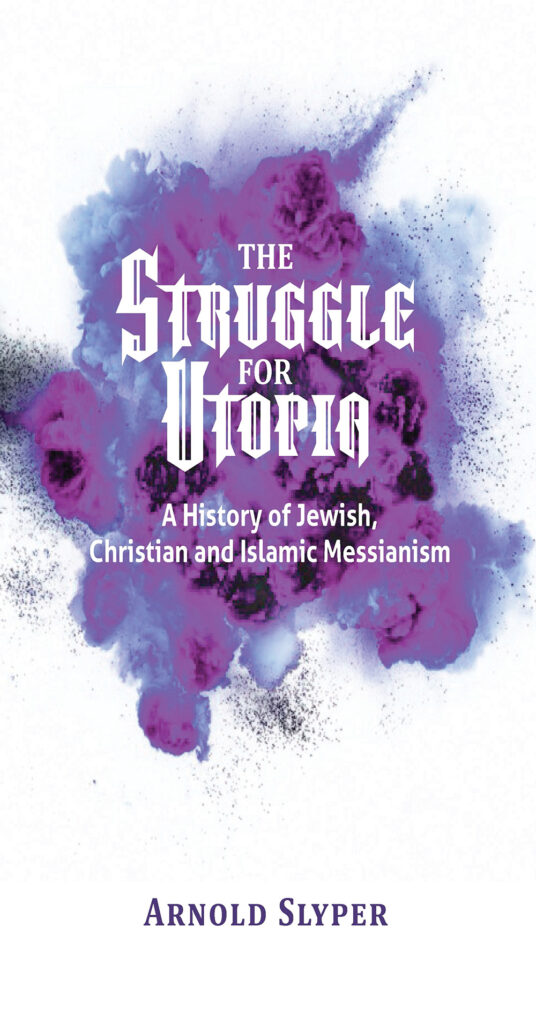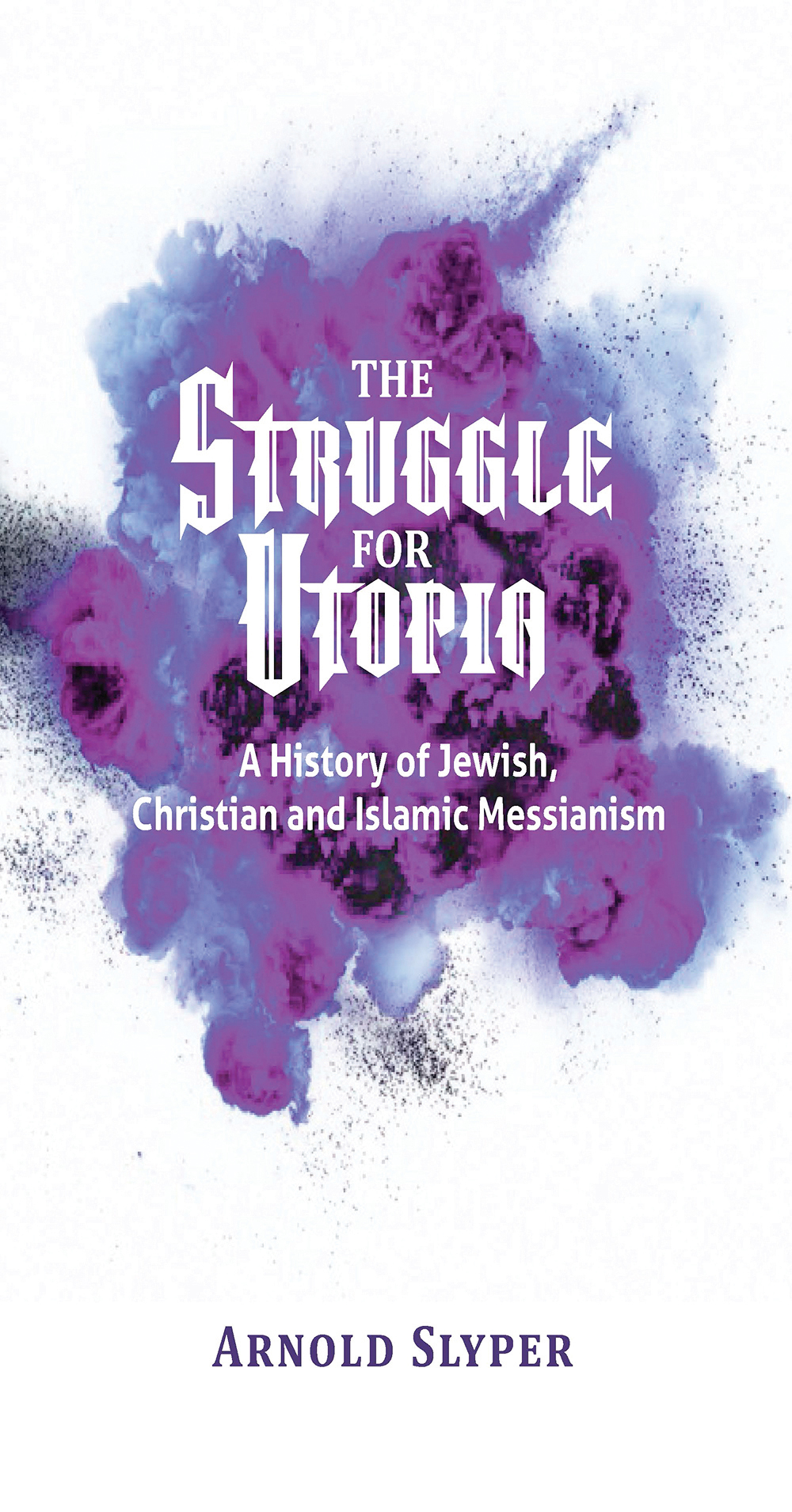
Highlighting “The Struggle for Utopia. A History of Jewish, Christian and Islamic Messianism” by Dr. Arnold Slyper. Kochav Press 2023. 368 pages. Paperback. ISBN: 979-8-9865478-0-0. Hardback 979-8-9865478-1-7.
Dr. Arnold Slyper wrote his book—“The Struggle for Utopia. A History of Jewish, Christian and Islamic Messianism”—because he thought that the topic was germane to the forces affecting the Jewish world. Little did he imagine that so many of its pages would act themselves out on October 7 of last year. Slyper now lives in Israel.
The book consists of the stories of the individuals most influential in developing utopian and messianic concepts for Judaism, Christianity and Islam, beginning with Abraham and ending with the messianic genocidal program of Haj Amin al-Husseini, the mufti of Jerusalem. As a founding member of the Muslim Brotherhood, al-Husseini set the religious tone for the Israeli-Palestinian conflict that continues to this day. He also promoted genocide within Palestine as mufti of Jerusalem and later as a spokesman for the Nazis in Berlin.
The book is written from an Orthodox Jewish perspective, but it is not about selling messianism to its readers. Rather, it is an exploration of how the messianic ideas of the three major monotheistic religions developed. Slyper explains how the Torah set out to create a utopian society, how the messianic concept was formulated by the prophets of Israel, and he discusses Isaiah, Micha, Jeremiah, Haggai and Zacharia, and how their words were interpreted by later Jewish tradition. He devotes an entire chapter to a comparison of the very different approaches of Maimonides and Nachmanides to the messianic era and the World to Come.

The book continues with the ideas and influence of Lurianic Kabbala, and Theodor Herzl’s secular alternative of the utopian vision described in his book “Altneuland,” (which happens to be extremely close to current reality). Finally, he describes the highly influential messianic ideas of Rav Abraham Isaac Kook. Without an appreciation of the ideas of Rav Kook and his son Rav Zvi Yehuda Kook, it is difficult to understand the messianic trends within Israeli politics today that are promoted by some religious Zionist politicians.
The final chapter of the book is about the messianic struggle for the Temple Mount. Slyper writes that “The eschatological (end of time) ideas of Judaism and Islam on the Temple Mount are in total conflict with each other.” Thus, “Muslims will never agree voluntarily to share the Temple Mount.”
Another aim of this book is to show how Christianity and Islam borrowed their End of Time ideas from Judaism but eventually turned against Judaism.
The chapters on Islam begin with the ideas of Muhammad. Slyper explains the difference in Jewish and Islamic ethics is that “the basis of Islamic ethics is the Qur’an and the words and actions of Muhammad as reported in the hadiths” while that of Judaism is the imitation of God. In the chapter on Amin al-Husseini, Slyper elaborates on the evolution of Fundamental Islam, and the apocalyptic, messianic belief of Iran, Hezbollah and Hamas of eliminating the State of Israel and killing the Jewish people as a prelude to the End of Days.
His chapters on Christianity start with the messianic ideas of John the Baptist and Jesus of Nazareth and then their reinterpretation by Paul of Tarsus. All these influential figures were, of course, Jewish. He states that “within Paul’s supersession ideas and the need for Christianity to define itself in relation to Judaism were born unintentionally the seeds of Christian hatred of Jews.” There is also a section on how Christian interpretations of the book of Revelations influence Democratic and Republican policies in the United State in relation to Israel.
This book is a thorough primer for both Jews and non-Jews seeking to understand the foundational stories and core theologies underpinning Judaism, Christianity and Islam. It also provides a comprehensive, well-organized and highly readable explanation of their messianic traditions. All this is highly relevant to what is happening around us today. In a skillful way, he puts each of the chapters in conversation with one another and in this way tracks the progression of the messianic concept throughout history. This book is a fascinating read.









